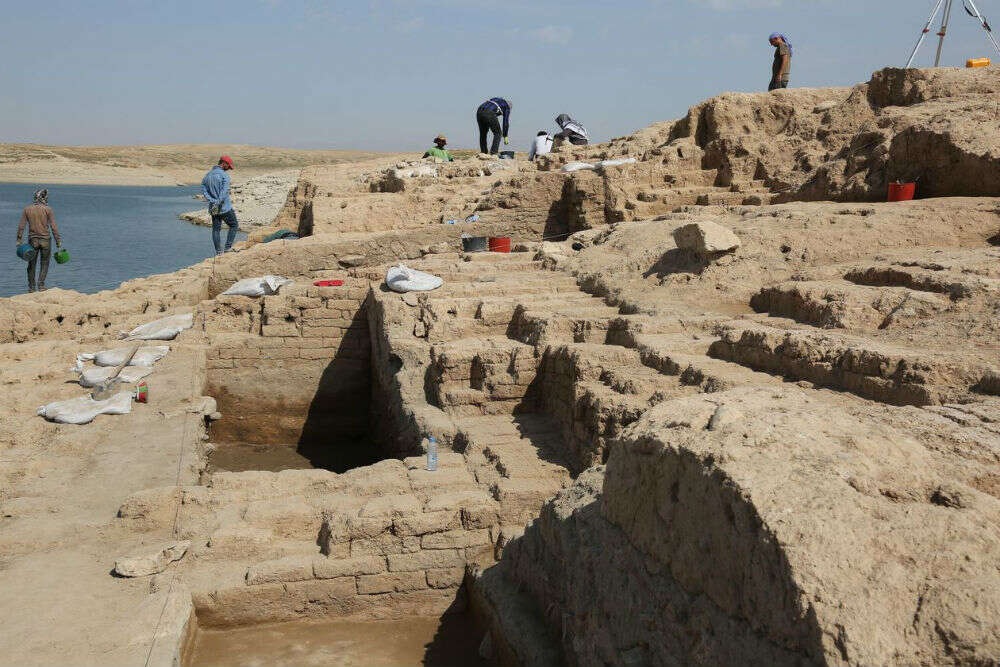Recently, a team of archaeologists unearthed a 3400-year-old palace, belonging to a mysterious Mittani kingdom in Iraq. The ruins emerged on the waters of the River Tigris during a severe drought. The water level was significantly reduced in the Mosul Dam reservoir, and that is when the palace appeared.According to Hasan Ahmed Qasim, a Kurdish archaeologist, who worked on the site, “The find is one of the most important archaeological discoveries in the region in recent decades and illustrates the success of the Kurdish-German cooperation”.


Photo courtesy: University of Tübingen and Kurdistan Archaeology OrganizationAnother archaeologist Ivana Puljiz of the University of Tübingen putting light on the importance of the discovery said that the Mittani Empire is among the least researched empires of the Ancient Near East. The information on the existence of this particular empire is so little that historians don’t even know the capital of the Mittani Empire.The team did not get much time as the water level kept increasing in the Tigris. But, in that short period, 10 cuneiforms (a system of writing first developed by the ancient Sumerians of Mesopotamia) clay tablets were found from inside the palace.Archaeologists also discovered wall paints in bright shades of red and blue.

Photo courtesy: University of Tübingen and Kurdistan Archaeology OrganizationPuljiz mentioned that in the second millennium BC, colourful murals were the prime feature of palaces in the Ancient Near East but they never found any so well-preserved. So, discovering wall paintings in Kemune is no less than an “archaeological sensation”, she mentioned further.With this discovery, the researchers in Germany are hoping to find more about the Mittani Empire, which was prevalent in several parts of Syria and northern Mesopotamia.
Sources:timesofindia.indiatimes








